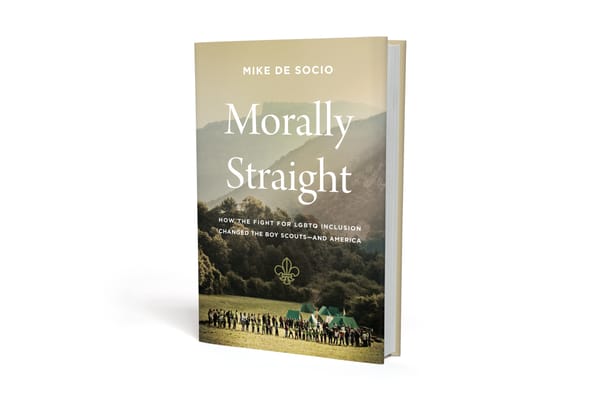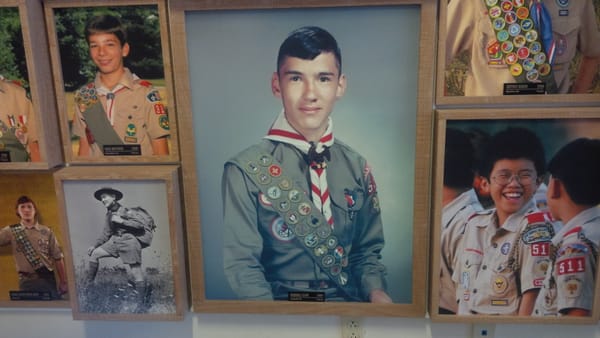A behind-the-scenes book update
Writing, it turns out, has not been the most challenging part of writing a book.
You might be surprised to learn that a writing a book actually involves a whole lot of stuff that has nothing to do with writing at all.
At least, I was surprised. When I decided on a rainy May afternoon three years ago that I wanted to write one, I figured the challenges would be mostly of the semantic variety: Things like sentence structure, pacing, narrative.
And while I do think about those things a lot, the most challenging parts of the book so far have been all of the other tasks that get an author to publication.
So today I want to lift back the curtain a bit and tell you all how I got here—and about the hurdles that remain.

How I got here
It took me an embarrassingly long time—almost two years—to figure out how the publishing industry even worked. I guess I can’t blame myself too much, because the publishing world is notoriously (dare I say, intentionally) opaque.
There was a time when I literally thought I would just send my manuscript directly to HarperCollins and, bingo-bango, they would publish it. Reader, this is not how it works. I spent a long time fumbling around, writing bits and pieces, before someone set me straight.
It was during a virtual journalism conference in the fall of 2020. I had popped into a session all about nonfiction book writing, and the panelist laid it all out in stark detail: I needed to write a book proposal, get an agent, and then maybe, just maybe, I would end up with a book deal. Sounds simple, and yet at the time, I found this revolutionary, like someone was giving me the secret key to the castle.
I spent the next few months, with the help of an online course, putting together a book proposal. This is basically a 40-60 page document that acts as a sales pitch for your book. The most important part, and the bulk of those pages, is your writing sample, usually a few chapters worth. The rest of it is made up of a synopsis, some marketing plans, a review of competing titles and a brief author bio.
With my finished book proposal in hand, I went out in search of a literary agent. This, too, was an area where I was woefully naive. I sent my proposal to a few hand-picked agents and eagerly awaited their responses that … mostly never came. Another reality of publishing hit me hard: Most agents don’t have the time to even look at, never mind respond to, every pitch that comes their way.
By the time spring came, I had sent out my proposal to some 50 agents, and all I had to show for it were a handful of rejections and, otherwise, crickets in my inbox. I felt pretty much hopeless at this point, convinced there was not a market for my book, or that my writing simply wasn’t good enough to warrant anyone’s attention.
I wallowed in this rejection until I remembered something a mentor had told me a couple of years back, when I first started toying with the book idea. He was an author himself, and offered to connect me to his agent when the time came. I figured the time had most assuredly come (and I was fresh out of other ideas), so I emailed my mentor to take him up on it. Within minutes, I was copied on an email to his agent, and I sent my proposal along, with fingers crossed.
The agent immediately liked my book idea and set up a call to discuss it. Our phone call left me speechless: Here was this big-shot agent (who had represented more than a few celebrities) telling me not only that he liked my book, but that he could see it landing at a major publishing house. The day we signed a contract to work together truly felt like one of the biggest milestones of my writing career.
It would not, however, immediately translate to a book deal. We spent another few months refining my book proposal, trying to master this weird format that was half-journalism, half-marketing. By the time we got it hammered out and my agent pitched it to a handful of publishers, almost a year had gone by, and I had also attended a 5-week nonfiction writing fellowship in the meantime.
It was, most definitely, worth the wait. An editor at Pegasus Books took a liking to my proposal right away, and from the moment we spoke on the phone, I knew it was the right home for my book. On a glorious day in April of this year, we signed the publishing contract, clearing the last major hurdle to making this book a reality.
What I’m working on now
Contrary to popular belief, I am still not done writing the book.
This is actually extremely common in nonfiction publishing (in stark contrast to fiction, where manuscripts must be completely finished before you approach a publisher). I had about a third of my book written when I signed my publishing contract. The idea is that you write that part as a proof-of-concept, and then with the time and money afforded by your publisher, you go do the reporting and writing necessary to finish the book.
I have about a year left before I need to turn in my finished manuscript, which sounds like a long time, but it is really flying by. Because my book is heavily-reported nonfiction, I can’t just sit down every morning and churn out 1,000 words. Every word I write is the product of original interviews and research. Put another way, I can only write as fast as I report.
So most weeks, I dedicate 2-3 days solely to book work (the other half going toward my freelance journalism business). The bread-and-butter of the book work these days are phone interviews with key activists and change-makers from the gay membership battle. I’m usually trying to reconstruct the sequence of events, and dig into really key scenes so that I can write them in vivid detail.
I also find myself watching a lot of old TV news clips, and reading lots of old news articles. These help me fill out some basic facts, and also give me a sense of how things were being received at the time.
This work is, above all, a lot of fun. I feel like the bulk of the non-writing challenges of publishing are behind me. With a contract in hand, I can finally focus on all the things that inspired me to write a book in the first place. I often describe the reporting process as a kind of treasure hunt. I’m constantly discovering new, surprising things; readjusting my understanding of events; marveling at the stories I hear from my sources.
Over the next 12 months, there will be a whole lot more of this. I have a few reporting trips planned as well, with the goal of interviewing some people in person and visiting key places. I’ll also be ramping up the promotion efforts, which began in earnest this summer when I launched preorders.
So, that’s where I am, and how I got here. What questions do you have about the process? Throw them into the comments and I’ll do my best to answer!


